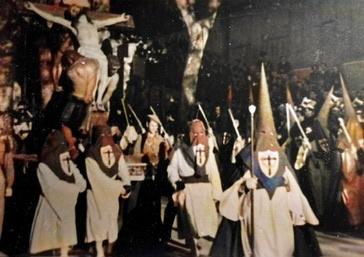In what ways did the Christian reconquest under James I of Aragon affect trade in Mallorca’s villages?
Similar Topics
christian reconquest mallorca
james i aragon
mallorca mediterranean commerce
feudal trade system
catalan settlers mallorca
mallorca export goods
mallorca trade infrastructure
mediterranean trade network
The Christian reconquest under James I of Aragon, completed in 1229, marked a significant turning point for the island of Mallorca, particularly affecting trade in its villages. Prior to the conquest, Mallorca was under Muslim control, functioning as a prosperous hub in the Mediterranean trade network dominated by Islamic merchants. After the Christian forces took control, the island's political and cultural landscape changed dramatically, leading to new economic structures. The reconquest introduced a feudal system aligned with Christian European norms, which reshaped local administration and land ownership, directly influencing the way trade operated in the island’s villages.
Following the establishment of Christian rule, James I sought to integrate Mallorca into the broader Crown of Aragon’s commercial sphere. This transition encouraged the development of new trading relationships with Christian Mediterranean ports such as Barcelona and Valencia. Villages that had been primarily agricultural or artisanal under Muslim rule gradually adapted to participate more actively in maritime commerce. The influx of Catalan settlers, alongside the expulsion or conversion of the previous Muslim inhabitants, meant that new trade practices and regulations were implemented, often emphasizing the export of local goods like wheat, olive oil, and wine. These commodities became staples in the trade network connecting Mallorca’s villages with the mainland and beyond.
The reconquest also led to the construction and improvement of infrastructure, such as ports and roads, which facilitated the flow of goods and contributed to economic growth. Coastal villages in particular saw a boost in their importance as trading outposts, benefiting from enhanced security and administrative support under the Christian crown. Nevertheless, this period was not without challenges; the social upheaval following the conquest created tensions and disrupted established trading patterns, sometimes limiting immediate commercial expansion. Over time, however, the incorporation of Mallorca into Christian Aragonese territories brought greater stability and integration into a flourishing network of Mediterranean trade, laying the groundwork for the island’s prosperity in the subsequent centuries.
Following the establishment of Christian rule, James I sought to integrate Mallorca into the broader Crown of Aragon’s commercial sphere. This transition encouraged the development of new trading relationships with Christian Mediterranean ports such as Barcelona and Valencia. Villages that had been primarily agricultural or artisanal under Muslim rule gradually adapted to participate more actively in maritime commerce. The influx of Catalan settlers, alongside the expulsion or conversion of the previous Muslim inhabitants, meant that new trade practices and regulations were implemented, often emphasizing the export of local goods like wheat, olive oil, and wine. These commodities became staples in the trade network connecting Mallorca’s villages with the mainland and beyond.
The reconquest also led to the construction and improvement of infrastructure, such as ports and roads, which facilitated the flow of goods and contributed to economic growth. Coastal villages in particular saw a boost in their importance as trading outposts, benefiting from enhanced security and administrative support under the Christian crown. Nevertheless, this period was not without challenges; the social upheaval following the conquest created tensions and disrupted established trading patterns, sometimes limiting immediate commercial expansion. Over time, however, the incorporation of Mallorca into Christian Aragonese territories brought greater stability and integration into a flourishing network of Mediterranean trade, laying the groundwork for the island’s prosperity in the subsequent centuries.
🧩 Related Questions
Related Question
How do Mallorca authorities balance water conservation with reservoir water quality management?
Related Question
How do Mallorca's cemeteries reflect the island's architectural and cultural heritage?
Related Question
How do cultural values in Mallorca promote or hinder water conservation alongside desalination solutions?
